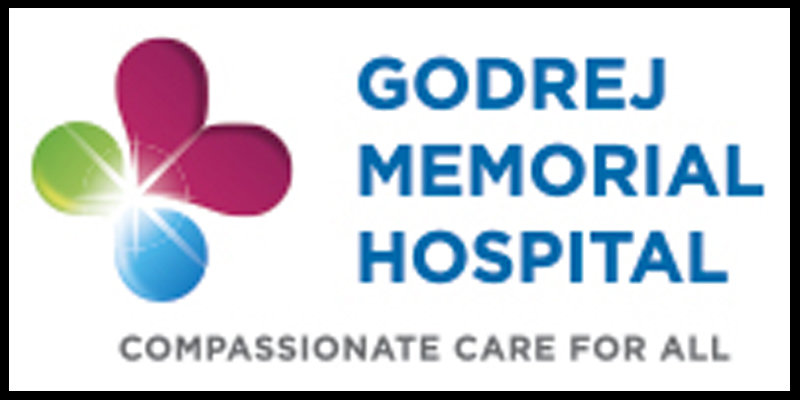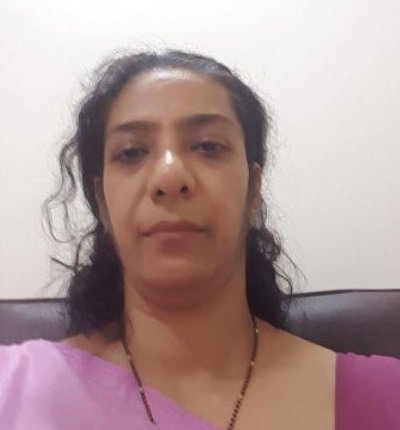Best Pediatrics And Pediatric Surgery Hospitals in India

Godrej Memorial Hospital
Mumbai, IndiaMulti-Specialty Hospital
Pirojsha Nagar, Vikhroli East
8217 KM's away
Specialities
19Doctors
123Beds
110










Fortis Hospital Mulund
Mumbai, IndiaMulti-Specialty Hospital
Mulund, Goregaon Link Rd, Nahur West
8219 KM's away
Specialities
46Doctors
115Beds
261










Gleneagles Hospitals
Mumbai, IndiaMulti-Specialty Hospital
35, D.E.Borges Road, Hospital Avenue
Parel, Mumbai
8206 KM's away
Specialities
33Doctors
42Beds
200










Sai Snehdeep Hospital
Navi Mumbai, IndiaMulti-Specialty Hospital
Plot 12-13, Sector 20, Kopar Khairane
8224 KM's away
Specialities
25Doctors
39Beds
125










Prakriya Hospitals
Bengaluru, IndiaMulti-Specialty Hospital
Prakriya Hospitals, Tumkur road, Service road, Nagasandra,
8655 KM's away
Specialities
17Doctors
33Beds
200










Sushrut Hospital And Research Center
Mumbai, IndiaMulti-Specialty Hospital
365, St Vershaw Kakkaya Marg
8212 KM's away
Specialities
41Doctors
31Beds
30












Criticare Hospital
Mumbai, IndiaMulti-Specialty Hospital
Plot Number- 516, Telli Galli
8209 KM's away
Specialities
8Doctors
25Beds
100










Sunshine Hospital
Navi Mumbai, IndiaMulti-Specialty Hospital
C-19, Nerul, Navi Mumbai
8225 KM's away
Specialities
9Doctors
17Beds
0










Sankalp Speciality Healthcare Private Limited
Nashik, IndiaMulti-Specialty Hospital
Mumbai Naka, Matoshree Nagar.
8315 KM's away
Specialities
9Doctors
15Beds
50










Surgecare Super Speciality Hospital
Bengaluru, IndiaMulti-Specialty Hospital
Site No 1&2, 5th Cross, Ramamurthi Nagar Main Rd, near Ramamurthy nagar, Dayananda Layout, Signal
8672 KM's away
Specialities
30Doctors
0Beds
0Top 10 Pediatrics And Pediatric Surgery Hospitals In India
| Hospital | Rating | Doctors | Location |
|---|---|---|---|
| Godrej Memorial Hospital | ---- | 123123 | Vikhroli, Mumbai |
| Fortis Hospital Mulund | 5 | 115115 | Mulund West, Mumbai |
| Gleneagles Hospitals | ---- | 4242 | Parel, Mumbai |
| Sai Snehdeep Hospital | ---- | 3939 | Kopar Khairne, Navi Mumbai |
| Prakriya Hospitals | ---- | 3333 | Nagasandra, Bengaluru |
| Sushrut Hospital And Research Center | ---- | 3131 | Chembur East, Mumbai |
| Criticare Hospital | ---- | 2525 | Andheri East, Mumbai |
| Sunshine Hospital | ---- | 1717 | Nerul, Navi Mumbai |
| Sankalp Speciality Healthcare Private Limited | ---- | 1515 | Tidke Colony, Nashik |
| Surgecare Super Speciality Hospital | ---- | -------- | Ramamurthy Nagar, Bengaluru |
Questions & Answers on "Pediatrics And Pediatric Surgery" (589)
My son Pre matured baby whe he bron thats time his age 6 month 8 days.per send age 8 years he cant responce aney tritment
Male | 8
Preterm babies often react slower while growing up. If at 8, your boy responds differently than his peers, it could signal an issue like cerebral palsy or autism. To assist him, get pediatricians and therapists were involved. They'll evaluate needs, and give therapy, and support.
Answered on 28th June '24
Read answer
My son 9 yrs old. He does competitive swimming. In last Feb, after xray doctor has told that he has 50% enlargement of adenoid. He allowed to do swimming. Child suffer cold almost once every month. Today also we checked thru endoscopy. It is still 50% as per doctor. Should we continue swimming or we need to stop..we need second opinion
Male | 9
Sometimes having enlarged adenoids can make them more susceptible to cold. Perhaps swimming is a factor that irritates his adenoids. It is important to ensure his health is not sacrificed for his swimming hobby. I suggest giving a short break to him swimming and observing whether his adenoids get better. This might help him get less affected by cold.
Answered on 2nd Dec '24
Read answer
Baby is vomiting and dint pooped for 3 days
Male | 6 months
It can be a sign of constipation or a stomach bug. They might complain of discomfort and pass out if they have constipation. Ensure your baby is taking in enough fluids. If the issue persists, then you must contact your pediatrician doctor for proper diagnosis and treatment.
Answered on 23rd May '24
Read answer
My son drink 30ml of Nyquil instead of 15ml. He is 8yr old. weight 44lb and 4ft height.
Male | 8
Medicine is crucial but you must be extremely careful with doses. If your child takes too much, it can make them sick. Your son drank double the recommended Nyquil amount. He will likely feel drowsy, dizzy, and have an upset stomach or headache. The overdose happened because the medicine was too strong for his body size. Give him water right away. Watch him carefully for other symptoms. If he seems unwell, don't hesitate to get medical help.
Answered on 12th Oct '25
Read answer
My son has 5 yr 11 months. He has fever last Sunday 24. Till fever is not going
Male | 5
It seems your son is unwell. Fever in children is usually seen along with infections that have germs as the causative agent. The body may bring fever to get rid of these diseases. Be certain that he is well hydrated first, eats nutritious food, and rests accordingly. You should consult a pediatrician if the fever persists.
Answered on 2nd Dec '24
Read answer
chicken pox,fever and headech recently from 2days
Male | 28
Chickenpox is a viral infection that can indeed cause fever and headaches. It's quite common, especially in children, but adults can get it too. The good news is that it's usually not serious and tends to get better on its own. In the meantime, make sure to drink plenty of fluids, get lots of rest, and take some acetaminophen for the fever and headache. If you notice any trouble breathing, chest pain, or severe dizziness, do seek medical help promptly.
Answered on 18th Dec '25
Read answer
ابني 12عام عنده تبول لاردي من صغره ومازلت رغم انو معندهوش مشكلة عضوية ودرسيا كويس وكلو قالي لازم تصحي وتعملو بانتظام فهل ينفع هل ينفع استخدم القصرية لولد عمره 12سنة عنده تبول لااردي اثناء الليل ام استخدمها طول اليوم افضل لمنع التشتت ام ملهاش لازمة
ذكر | 12
Sometimes, this could be due to delayed maturation of the bladder control mechanism. Since you mentioned that there are no underlying medical or academic issues, it's likely just a matter of time before your son's bladder catches up. In the meantime, it might be helpful to limit fluids a couple of hours before bedtime and encourage him to use the bathroom right before sleeping. Using a bedwetting alarm or medication like desmopressin can also be considered after consulting with your pediatrician.
Answered on 11th Nov '25
Read answer
My son is suffered by jaundice, he is under treatment. I want to show his treatment paper and report and I want to know that his treatment is going right or wrong.
Male | 13
Jaundice is characterized by yellowing of the skin and eyes, caused by elevated bilirubin levels in the blood. It can arise from various conditions, including liver issues or infections. It's great to hear your son is receiving treatment. To assess his progress, sharing his treatment documents with a pediatrician would be very beneficial. They can provide clarity on his current management and any necessary adjustments. Please continue to monitor his symptoms and ensure he stays hydrated. Keep up with medical appointments, as professional guidance is crucial for recovery.
Answered on 17th Mar '25
Read answer
As my cousin has been diagnosed with communicating hydrocephalus ,his head is not so big enough ,can it be curable without surgery
Male | 1.9
Answered on 23rd May '24
Read answer
I am writing to seek your advice regarding my 3-year-old child. I have noticed small lumps on both sides of her neck, and I am concerned about whether this could indicate a serious health issue.
Female | 3
Sometimes, small lumps in the neck area are caused by lymph nodes. This is a normal response to viruses or allergies. These swellings occur when the immune system is fighting with the body. Normally such cases will be harmless and will be resolved once the body takes care of itself but it is always best to see a pediatrician to get a thorough checkup done. They may offer you a solution and, if it is needed, the right course of treatment.
Answered on 2nd Jan '25
Read answer
Hiiii patient name jasvika 7/f , she suffering epilepsy problem
Female | 7
You should get an MRI of the spine. MRI would give us a complete diagnosis.
Answered on 23rd May '24
Read answer
It's about my 8 year old son I am worried about the adhd symptoms please suggest me the better cure
Male | 8
ADHD means he struggles to focus, stays restless, and acts impulsively. Many kids his age face this challenge. Things like genes, brain growth, and surroundings play a role. With therapy, counseling, and sometimes meds, ADHD symptoms can be better managed. Work closely with school and doctors to plan best for your son.
Answered on 28th June '24
Read answer
twin baby born one baby not recovered from jaundice from birth now the baby 3.5months old weight not gained.
Male | 105days
Jaundice is a condition when the baby’s skin and eyes become yellow and can occur in newborns. In case it is prolonged, it may lead to weight loss. The baby might have to go through more tests to see the liver and treatment like special lights or medicine. The doctors can help with this.
Answered on 13th Sept '24
Read answer
Today I saw some blood spot on my daughter's underwear she is 12 years old
Female | 12
Blood spots on your daughter's underwear can seem alarming, but it's often straightforward. Around her age, bleeding before periods start is common. It's called menstruation - girls experience it as they grow up. Ensure she knows about pads or tampons for staying fresh during this time.
Answered on 24th June '24
Read answer
This Rajendra from Nepal today I bring to you that my son is 7 year old. He has strayed high fever sudden i Took in the clinic which dr. Has giving som glucose and since 7 days he is not eating anything Please suggest me to what should I do he has very weakness he can’t stand all the sleeping only
Male | 7
It seems he may have a serious condition causing the fever and weakness. The glucose given by the doctor was likely to provide energy. Not eating for 7 days is quite concerning. It's important to take him back to the doctor for further evaluation and treatment. Meanwhile, ensure he stays hydrated and gets plenty of rest.
Answered on 23rd Sept '24
Read answer
My son is 8 years. He is suffering from running nose and cough from 1 week
Male | 8
Your child likely has the common cold virus. His runny nose and cough are symptoms. Rest is important. Keep him hydrated. Feed him nutritious meals. Use a humidifier, it can soothe symptoms. These actions support recovery as the body fights infection. He'll soon feel better.
Answered on 24th June '24
Read answer
My 14 month old son developed a red nipple last Saturday. Since then the redness has gone down. However still a noticable difference from the other nipple. It is also going inverted and coming back out. He was not born with inverted nipples.
Male | 14 month
It is great that differences have been spotted in your son's nipple. This could be due to moments of redness and inversions whenever irritations or infections set in. It is quite necessary to stick around. If the condition persists or grows more severe, the best alternative would be to seek further evaluation and advice from a pediatrician.
Answered on 23rd May '24
Read answer
lumph node at under armpit my daughter is 12yrs old and she started her puberty can this be a cause of it?
Female | 12
As girls approach adolescence, bodily changes happen - it's normal. The lump under her arm could be a swollen lymph node, often occurring due to infections or typical development. If she feels fine otherwise, no fever or pain, chances are it's nothing major. However, keep monitoring it closely. Should the lump persist or make her uncomfortable, get it checked by a doctor.
Answered on 1st Dec '25
Read answer
Sir meri baby ka 27 week hai aur bsp 76 hair aur hc 277 hai koi problam hai kya
महिला | 28
Aapka baby 27 hafton ka hai, aur BSP (Biparietal Diameter) aur HC (Head Circumference) ke aakar samanya roop se theek lag rahe hain. Yeh measurements baby ki growth ko darshate hain. Agar aapko kisi tarah ki tension ya alag symptoms mehsoos ho rahe hain, toh kisi pediatrician se sampark karna behtar hoga. Doctor aapke baby ka thik se jaiza le sakte hain aur zaroori salah de sakte hain.
Answered on 15th Jan '25
Read answer
Hi Doctor My son born on 4/5/19.Now he is not speaking properly.He is tell what we say he will not answer.Remaning and all its OK. Please give me suggestions Doctor
Male | 4
Variations exist when kids develop speech skills. If speaking challenges arise with your son, potential reasons could be hearing issues, developmental delays, or simply taking more time. I suggest seeking a professional evaluation of his hearing and consulting a speech therapist. They'll provide insight into nurturing his speech progress.
Answered on 3rd Mar '25
Read answer
Get Free Assistance!
Fill out this form and our health expert will get back to you.